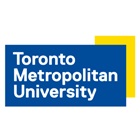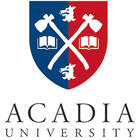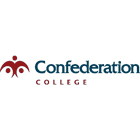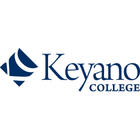Canada attracts international students not only because of its top-quality education and safe environment, but also because of its attractive immigration policy. In 2026, the Canadian government and universities have announced new changes in visa policies, admission requirements, and many valuable scholarships. This article will compile detailed and important information about studying in Canada. You can also contact IDP for free advice on studying in Canada, helping you prepare for your upcoming study journey with confidence.
1. Reasons Canada attracts international students
Not only is Canada famous for its stunning natural scenery and top-notch quality of life, but it is also one of the countries with the world's most highly regarded education system. So why should you study in Canada? Here are the reasons why more and more international students, including Vietnamese students, choose Canada as a study abroad destination:
1.1. World-class education
Canada has many universities that are at the top of international rankings (such as the University of Toronto, McGill University, University of British Columbia, University of Alberta), which are famous for their in-depth research and innovation. Programs are designed to meet the needs of students from a variety of countries, especially Co-op programs that help them develop well-rounded skills and gain practical experience to be ready for the global labor market.
1.2. Multiple Scholarships and Financial Aid
Every year, Canadian schools offer hundreds of valuable scholarships for international students who have excellent academic records or need financial aid. From scholarships to study in Canada up to 50% of tuition fees to full support packages, you can completely reduce the cost burden if you prepare your application early and get the orientation right from the beginning. Many schools also offer scholarships for Vietnamese students or scholarships by discipline – e.g., Engineering, Computer Science, Business, or Health.
1.3. Attractive job and settlement opportunities
The Government of Canada allows international students to legally work part-time during their studies and stay in the workforce for up to 3 years after graduation through the Post-Graduation Work Permit (PGWP) program. This is a great opportunity for you to gain international experience and expand your immigration opportunities through programs such as Express Entry, Provincial Nomination (PNP) in one of the most open immigration policies in the world.
1.4. Safe and multicultural living environment
Canada is consistently ranked as one of the safest and most livable countries in the world, featuring a multicultural community and friendly to international students. The open people, inclusive learning environment, and outstanding quality of health and social security services help students feel secure to focus on learning and self-development.
2. Education system in Canada
Unlike many other countries, Canada does not have a federal Ministry of Education or a unified national education system. Instead, each province and territory manages and builds its own educational program. Training programs across the country still ensure consistent quality and globally recognized qualifications.
Despite the many similarities, each locality still has its own characteristics depending on the policies and educational priorities of each provincial government. It is this difference that creates a diverse, inclusive education that is suitable for all the learning needs of international students.
2.1. Primary and Secondary Programs
Depending on the province or territory, children can start primary school at the age of 4 and finish secondary school when they are about 18 years old.
Elementary/Primary from Grades 1 to 8
Secondary/High School grades 7–9 through 12, depending on the region.
In Canada, students can choose between two popular forms of education, public schools or private schools, all of which follow high educational standards and are closely monitored by provincial education authorities. The curriculum is designed to help students develop both academic and life skills: critical thinking, communication, teamwork, creativity.
2.2. Post-secondary Programs
After completing grade 12, students can continue their studies at the post-secondary level with College, University or Postgraduate programs, depending on their academic goals and career orientation. This is an important step to help you develop your expertise, gain real-world experience, and prepare for a global career in the future.
Depending on the orientation, you can choose to study at a College, University or vocational institute, each study program has its own advantages and learning path.
Associate Degree Programs:
Associate degree programs in Canada focus on practical, practical skills rather than focusing intensively on teaching academic research like at the undergraduate level. The study period lasts from 1-3 years. After completing your Associate degree, you can transfer to university and continue your studies toward a bachelor's degree, provided you meet the school's required scores.
Undergraduate Programs:
Universities in Canada focus on academic teaching and intensive research, offering a variety of training programs in a variety of fields. Students can study on a pathway from Bachelor's to Master's and PhD. Typically, a Bachelor's program lasts 3–4 years, a Master's 1–3 years, and a PhD about 3–4 years depending on the major.
Vocational Programme (VET):
VET schools focus on practical skills training and vocational expertise, making students work-ready immediately after graduation. The goal of the Canadian apprenticeship program is to equip you with practical knowledge, solid career skills, and hands-on application experience, opening up a wide range of job opportunities in Canada and around the world.
4. Latest Updated Cost of Studying in Canada
How much money does it cost to study in Canada per year? What fees do you need to pay for is always the concern of many parents and students. In fact, calculating reasonable costs is an important step to help you and your family have solid financial preparation.
The total cost of studying in Canada usually includes tuition fees, living expenses, and other incidental expenses such as insurance, books, or transportation. Tuition fees to study in Canada usually vary depending on the school, level, major, and province you choose to live in. You can refer to the estimated fees for each level of study as below:
Level of Education | Duration | Average Tuition Fee |
English | Upon request | 3,000 CAD/year |
High School | 3 years (grades 10,11,12) | 13,000 - 30,000 CAD/year |
College | 2-3 years | 12,000 - 18,000 CAD/year |
Bachelor | 3-4 years | 17,000 - 50,000 CAD/year |
Master | 1-2 years | 19,000 - 35,000 CAD/year |
In addition to tuition fees, the average cost of living in Canada ranges from 22,000 to 25,000 CAD/year, which corresponds to the minimum financial requirements set by the Government of Canada when applying for a Study Permit. The actual cost may be higher depending on the city you live in and your lifestyle.
5. What documents are required to study in Canada?
Preparing a complete and accurate application to study in Canada is an important step that increases your chances of success when applying for a Canadian student visa. A well-prepared, clear, and honest application not only demonstrates academic prowess but also proves that you have sufficient finances and a clear plan to study in Canada.
Here is a list of important documents you need to prepare:
Transcripts and transcripts of the last 2–3 years
High school, university or master's diploma (if graduated). If not, you will need to provide a provisional Graduation Certificate.
IELTS or TOEFL test results (or equivalent certificates accepted).
Letter of Acceptance (LOA) from a school in Canada.
Curriculum vitae summarizing work experience and academic achievements (for Graduate programs)
Letter of Recommendation (LOR)
Statement of Purpose (SOP) presenting the purpose of study and future study and work plans
Proof of financial documents
Receipt of payment of tuition fees and housing costs for the first year
6. Which city should I choose to study in Canada?
With a large area and a quality education system that spans all provinces, Canada offers international students a wide range of options for study destinations. Each city has its own unique characteristics in terms of culture, climate and career opportunities. Here are the top 5 cities chosen by international students when studying in Canada:
6.1. Toronto, Ontario
Toronto is Canada's largest and most multicultural city, and it is also a destination that welcomes thousands of international students each year. As the country's largest economic, financial and technological hub, Toronto offers a wealth of job opportunities at multinational corporations and prestigious universities such as the University of Toronto, York University and Toronto Metropolitan University (Ryerson).
6.2. Ottawa, Ontario
Ottawa – the capital of Canada is a city famous for its safety, high quality of life and professional learning environment. With prestigious universities such as the University of Ottawa and Carleton University, Ottawa is suitable for those who love research, technology, or wish to pursue careers in the fields of government, high-tech engineering, and the defense/security industries.
6.3. Vancouver, British Columbia
On the West Coast, Vancouver is a dream destination for many international students thanks to its mild climate, stunning landscapes, and friendly living environment. The city is also known as the "Hollywood of the North" with a thriving film and technology industry. Schools such as the University of British Columbia (UBC) and Simon Fraser University (SFU) offer modern, hands-on training and attractive career opportunities after graduation.
6.4. Montreal, Quebec
Montreal – the cultural capital of the state of Quebec, is imbued with a sophisticated European style blended in the modern rhythm of North American life. The city of Montreal is also known as the academic center of Canada when it brings together famous universities such as McGill University, Concordia University and Université de Montréal. The cost of living in Montreal is quite reasonable compared to Toronto or Vancouver, but the quality of learning is still top-notch. This is the right city for those who love art, media and creative technology.
6.5. Quebec City, Quebec
Also in the province of Quebec, Quebec City is rich in French history and culture. It is also the only walled old city in North America, and is also a UNESCO World Heritage Site. With Université Laval – one of the oldest universities in North America, Quebec City is a great choice for those who want to practice French, learn about French-Canadian culture, and enjoy a peaceful, cost-effective learning environment.
7. Top universities in Canada
Canada owns a world-class education system with many universities in the top 200 in the world (according to QS World University Rankings). Schools are not only famous for their teaching quality and modern facilities, but also focus on training associated with practice, helping students learn, experience and develop their careers.
University of Toronto (Ontario)
University of British Columbia (UBC) – British Columbia
University of Alberta
McGill University
Toronto Metropolitan University
University of Waterloo
Saskatchewan Polytechnic
York University
See more: TOP 15 Canadian Universities according to THE Rankings and QS Rankings 2026
8. What should I study in Canada?
Canada has a diverse economy and an open immigration policy, so international students can choose from hundreds of different disciplines – from science, engineering, economics to the arts, education or health. However, following the trend in recent years, Canadian students tend to choose groups of majors:
Education
Media, Design, Fine Arts
Information Technology (Information Technology, Computer Science)
Business, Management, Finance
Engineering, Applied Sciences
Science, Technology, Engineering, and Mathematics (STEM)
Environmental Studies, Sustainable Energy
Besides choosing a school, identifying the right field of study is an important step to help you orient your future career clearly and sustainably. If you are still wondering what to study in Canada, IDP's consultants will help you discover your strengths, interests, and employment trends to build the most optimal route to study in Canada.
9. Scholarships to study in Canada for Vietnamese students
With the world's leading quality education system, schools in Canada offer many valuable scholarships to international students every year. Scholarship programs are often considered based on academic achievement, foreign language skills, extracurricular activities, or financial circumstances, providing an opportunity to reduce the cost burden and help your application stand out from the admissions committee.
Here are some typical Canadian scholarships from some of the schools coordinated by IDP:
Field | Scholarship Name – Value | Scholarship Value |
Toronto Metropolitan University | President's Entrance Scholarship | up to 40,000 CAD. |
University of Alberta | Entrance Scholarship: 5,000 – 6,000 CAD, which can be combined up to a maximum of 16,000 CAD. | 5,000 – 6,000 CAD, up to 16,000 CAD can be combined. |
University of Alberta | International Leadership Scholarship | up to 15,000 CAD |
University of the Fraser Valley | International Regional Entrance Scholarship | 5,000 CAD |
York University | President's International Scholarship of Excellence | 180,000 CAD/4 years |
See more details: Summary of scholarships to study in Canada 2026
10. Post-Graduate Employment Policy (PGWP) in Canada
One of the reasons why Canada is the world's top study abroad destination is its extremely attractive Post-Graduation Work Permit (PGWP) policy. This program allows international students to stay in Canada to work for up to 3 years if they study manpower-scarce industries such as Technology, Health, Engineering, and Education.
Owning a post-graduation work permit not only helps international students have more time to stay in Canada, but also helps you:
Expand opportunities to work legally in Canada and gain international experience.
Increase immigration opportunities through programs such as Express Entry or provincial nominee programs (PNPs).
Help students build networks and develop their careers after graduation.
Contact IDP for a free study abroad consultation in Canada!
Studying in Canada not only gives you the opportunity to study in one of the world's top education countries, but it is also a journey to open up your career and immigration future. Early preparation, from visa applications, finances to choosing majors and scholarships, will help you significantly increase your chances of getting a visa and receive the best financial support.
Advice on choosing a school and major:
Suggesting a study program that suits your goals and abilities. IDP always organises study abroad seminars that take place throughout the year. You can meet directly with school representatives, consider scholarships on the spot.
Admission Application Guide:
Detailed instructions for you to complete your application accurately and completely, ensuring that all requirements for studying in Canada are met.
English Certificate Preparation: Support you to register for the IELTS test with many attractive offers.
Scholarship Assistance: Stay up-to-date with the latest scholarship information and guide the application process to increase your chances of receiving a scholarship.
Visa Consulting: Assistance in preparing documents and guiding the process of applying
Providing essential support services for international students: Assisting you in finding accommodation, booking flight tickets at preferential rates, free phone sims, equipping skills before departure (Pre-departure session).
Book a consultation with IDP today!
Free study abroad consultation hotline: 19006955

Send funds securely with money transfer
Explore safe, convenient and fast payment solutions with our market leading partners.

Get your finances sorted with student banking
Set up your bank account before you arrive and secure your finances abroad.

Find your home away from home
We’ll help you discover student accommodation that makes you feel comfortable and at home, no matter where you are.
Cost of living calculator
Estimate how much you will need to cover your expenses including cost of living comparison for various country and accommodation options.
Can’t decide where to study?
Answer 5 quick questions to get personalised content and course recommendations









